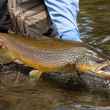You’ve likely heard of Ockham’s (or Occam’s if you prefer Latin) Razor, a problem-solving proverb bandied about by many pseudo-philosophers as the principle that says the simplest answer is usually the correct answer.
Somewhat ironically, the very phrase itself has been clipped of its complexity and misstated so many times that the true meaning has been muddied. It’s attributed to William of Ockham — an English Franciscan friar, philosopher and theologian. But William didn’t come up with this line of thought originally. He just used it so often that it became forever linked with him. And in truth, Ockham (or the person who first arrived at the principle) never said or implied that the simplest answer was likely the most accurate. What he said was: ”It is futile to do with more what can be done with fewer.”
One of the best layman’s translations I’ve read for Ockham’s Razor is that you should keep your guesses as simple as the observable facts allow. Key words: observable facts. Don’t complicate a hypothesis by stacking unproven complexities on top of it. The “razor” component of the principle implies that you shave away the unsubstantiated.
The most prevalent form of the bastardized version today is that favorite home-spun validation for the simple-minded counter to intellectualism — common sense. When you hear the phrase “common sense” employed as the supporting pillar of an argument, you can safely assume that said argument is coming from someone who knows very little on the subject they’re talking about.
Exhibit A: Opossum peckers
More Like This
You probably didn't know that male opossums have bifurcated or forked, if you prefer, genitalia. It's a marsupial thing and a little-known fact unless you've seen it in person, and I have, or studied mammalian reproductive biology, and I have. But I'm a rarity, a privileged (or cursed, depending on how you look at it) dude to have a foot in two camps, straddling the line between hillbilly and academic naturalist.
By and large, most folks who have seen an opossum’s pecker don’t know much about opossum biology, and they likely haven’t witnessed opossums doing the deed. This is how the backwoods lore about opossums breeding through the nostrils came about.
Yes, this is a real thing. People really thought this. Some still do. I’ve heard with my own ears people state this opossum nose-breeding bullshit as matter-of-fact knowledge, and just a few years ago.
I know it sounds ridiculous to anyone with any grasp of biology, but again, those folks most likely to have seen opossum peckers often didn’t have any grasp of biology beyond rendering an opossum’s carcass into meat and its fur into a pelt. When confronted with a phallus so unlike any other phallus they’d ever seen, there just had to be a simple explanation. There is, in fact, a simple explanation. But arriving at said explanation requires a slightly deeper understanding of opossum physiology. Without a deeper understanding — or the desire for a deeper understanding — folks tend to look for answers only on the surface. A two-dimensional world is all they know.
So to these folks, the male opossum’s twin pistons obviously require twin cylinders on the female opossum. And where are the obvious twin cylinders on a female opossum?
I’m not poking fun at a lack of knowledge. Ignorance is not the problem here. We’re all ignorant in some arena, and there are so, so many subjects of which I know little to nothing. The problem is a belligerent ignorance (bellignorance?), the acceptance of an absurdity that defies reason paired with a fierce defense of that absurdity as counterpoint to the truth. Those folks who claimed opossums breed through the nose would always, without exception, argue that this was the simplest explanation and, therefore, correct. It was their only logic: "It's plain as day. If a boy opossum has a split weenie, where else would they put it? Just common sense.”
You could’ve shown these people text from a mammalogy textbook, photos, helped them take a peek between a female opossum ’s legs, and even shared with them graphic video of opossum-on-opossum action and it wouldn’t matter. They were convinced — without any understanding of even the basic concepts involved — that they were right, that mere hearsay passed down from Pappy or some other unqualified authority figure could not be questioned. Or maybe they were just too proud to admit they might be wrong.
Not understanding the mechanics of marsupial mating likely won’t lead to dire consequences. But the trouble is that this very sentiment has been the exclamation point on many fruitless conversations about various topics. And the attitude has become ingrained in the American conversation when it comes to anything involving science.
Those cornpone ideas are rustic and quaint reminders of our simpler past when it comes to opossum peckers, water witching, and winter weather forecasts foretold in a persimmon seed. But the stakes are far too high for matters of an existential nature.
Not understanding how opossums procreate doesn’t change biology. Likewise, a lack of understanding the cause and consequences of climate change does not alter climatology. This is true for a litany of other issues as well, from the scientific to the socioeconomic. Even when that lack of understanding takes on a bristling political stance, the facts aren’t altered one iota. But the consequences of belligerent ignorance could prove devastating for generations to come.































Comments